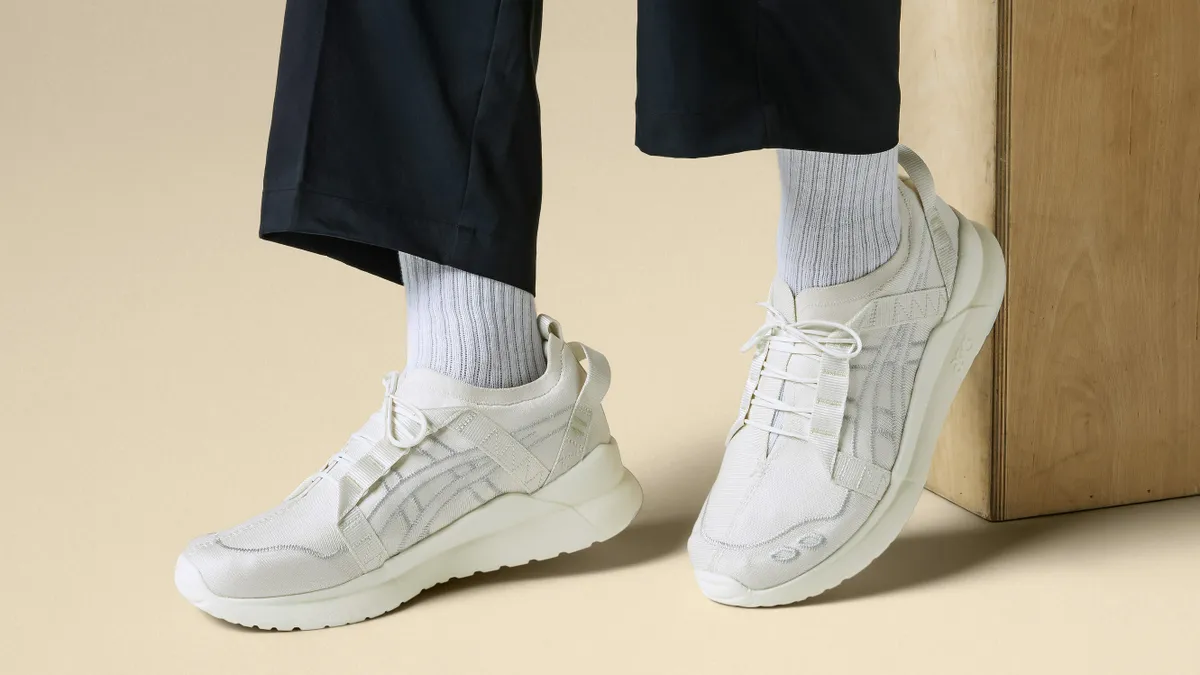Dive Brief:
- Alongside other shoe brands debuting low-carbon shoes, Asics announced Monday the launch of its Gel-Lyte III CM 1.95 sneaker. The company said in the statement that the shoe is the lightest emissions sneaker on the market.
- The shoe features carbon-negative foam in its midsole and sock liner and mesh made with recycled materials and solution-dyed polyester. Priced at $150, the shoes are available in cream/glacier gray colors.
- The brand will release the shoe on Sept. 22 online and in select stores, per the press release.
Dive Insight:
As the retail sector faces increased scrutiny over its environmental impact, shoe brands are developing more sustainable footwear. A year ago, the running shoe brand On introduced its Cloudprime shoe, which is 70% carbon-based and is an early prototype for more lower-carbon shoes. Earlier this year, Allbirds debuted the M0.0NSHOT, a shoe which has a carbon footprint of 0.0 kilograms CO2e and is made of carbon-negative regenerative wool.
Asics is working toward a goal of net zero emissions by 2050, and reduced carbon emissions by 22% from its direct operations in 2022.
“Not only is the Gel-Lyte III CM 1.95 sneaker the lightest CO2 emissions sneaker on [the] market, but we are also confident that it is one of the most aesthetically compelling shoes, on top of being very comfortable for users’ daily activities,” Go Suzuki, executive officer and senior general manager for Asics SportStyle said in a statement. “To accomplish our bold goal, we will continue to deliver creative solutions as exemplified in the Gel-Lyte III CM 1.95 sneaker.”
In addition to shoes, retailers are changing their apparel production to be more environmentally sustainable. In July, Walmart announced its partnership with Rubi Laboratories to add carbon capture technology into its supply chain operations and manufacture clothing with captured carbon emissions.
Research suggests that some consumers would pay more for eco-friendly products. According to an international survey released last November by Shopify, 40% of respondents said they were open to paying more environmentally-conscious items during the holiday season.














